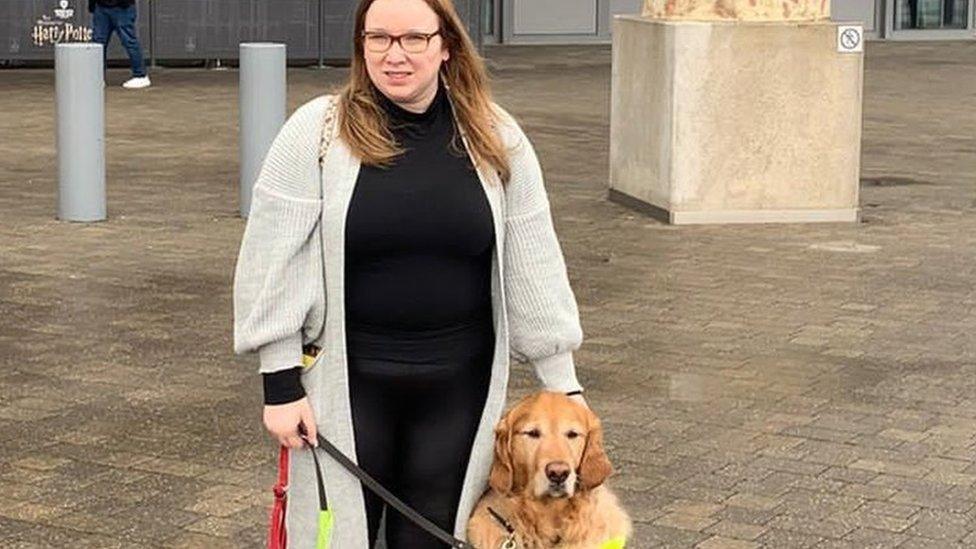Disability: Jobs market tougher than 15 years ago - RNIB
- Published
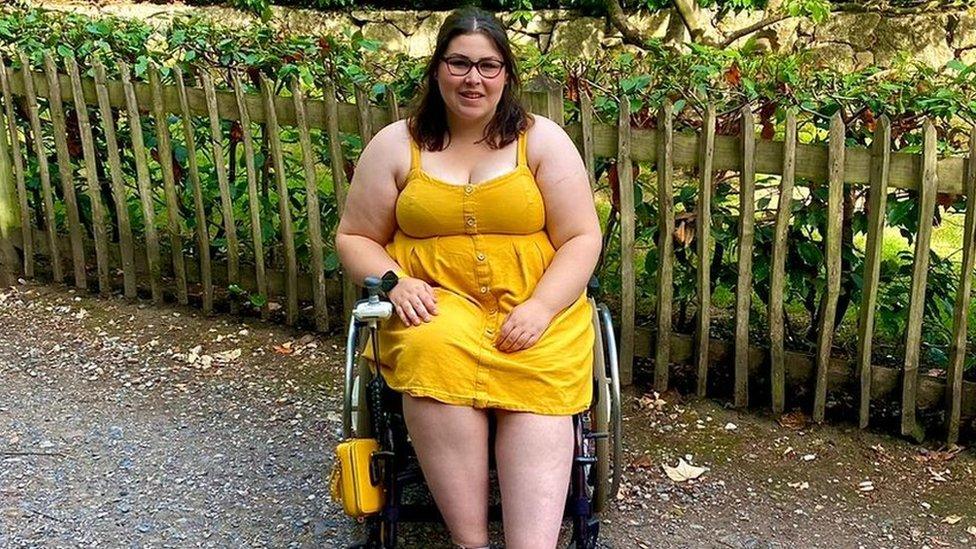
Holly Greader had to take a large break from employment due to her health
A charity says it is more difficult now to find paid employment than it was 15 years ago.
Nick Lancaster, 45 from Brecon, Powys is blind and said he struggled for 20 years to find a job.
Holly Greader, 25 from Cardiff, has chronic pain and hypermobility syndrome and said she had to give up her dream career due to her health.
The UK government has announced plans to make it easier for disabled people to get jobs.
After applying for hundreds of jobs, Mr Lancaster was finally offered a paid job in March, doing administration for RNIB Cymru.
Reflecting on his years of job hunting, Mr Lancaster said he thought many potential employers had found it difficult to understand how they could support him.
"They have been too frightened therefore to put the support in place," he said.
"A lot of employers don't understand what equipment and support I might need and maybe they think additional support will be too difficult to provide for me at home, despite the fact that my home is already adapted for my disability and is an ideal location to work from."
Mr Lancaster will be able to do his new job from home, but said the need to travel for work had been a problem in the past and particularly in rural Wales where public transport is limited.
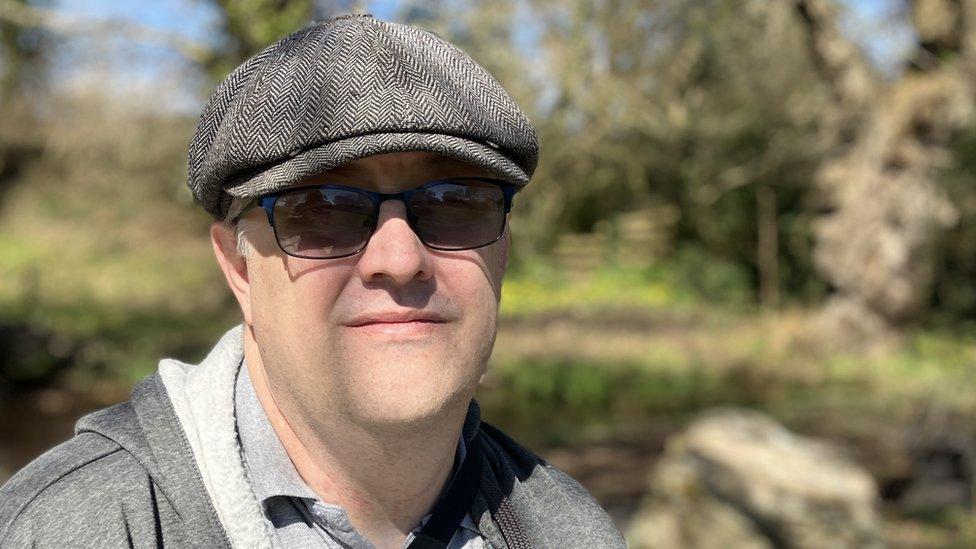
Nick Lancaster, who is registered blind, said he had "lost count" of his unsuccessful job applications
He said other challenges included application forms where the print was too small for people who are visually impaired.
Having the confidence to disclose his disability to a prospective employer was also a concern, he said, as he remained fearful of prejudice.
According to RNIB Cymru, about one in four people of working age with sight loss are in employment, compared to 15 years ago when it was one in three.
Ansley Workman, director of RNIB Cymru, said: "It's getting lower and lower and obviously we're really concerned about that. If you look at the cost of living these days and issues going on there, people need to be working and need to have an income."
Ms Workman said the charity was working with employers to give them the necessary skills and knowledge to make workplaces accessible for people with sight loss.
"I think often it's a matter of understanding [that] it can be small adjustments that make the difference," she said.
"Some people might need something as simple as not having bright lights in areas where they're working or having larger font sizes on their computer."
Emily Roberts, 25 has cerebral palsy and has worked as an admin assistant at Samantha K's Bridal & Occasion wear for six years.
"It's also important for disabled people to feel like they're people and feel like we can live equal lives," she said.
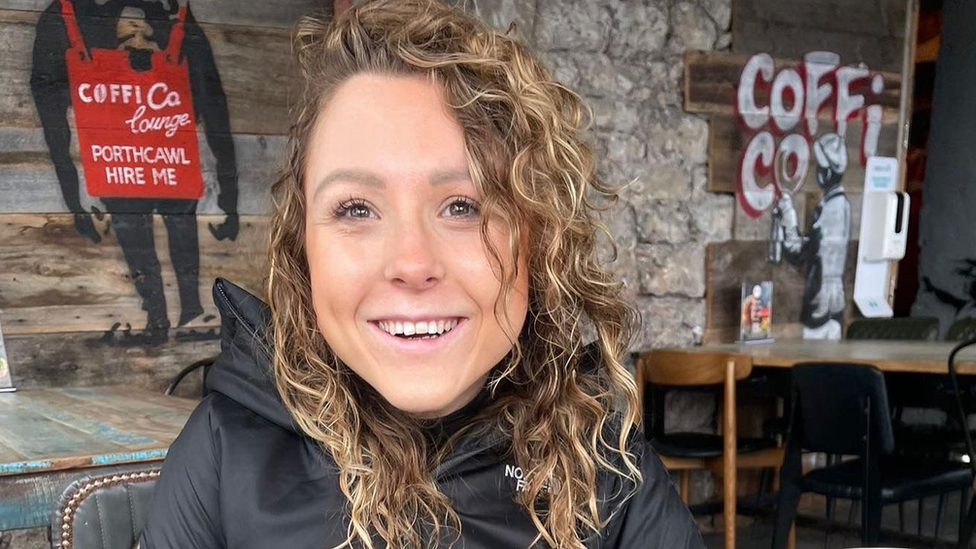
Emily Roberts has worked at the bridal shop for six years but says her friends who also use wheelchairs have faced struggles when finding a job that suits their needs
"If the only thing stopping you from working is the working environment there is changes we need to make.
"My friend actually applied for a job but when she was offered the interview she went to the place where the interview was being held and there were steps to get in and they didn't have a ramp.
"She said to me, 'I can do the job I just can't get in to do it'."
Ms Roberts said making a workplace accessible for employees also makes it accessible for the general public.
"Visibility is so important for disabled people, we should be out and about in society we should be living normal lives but we should also feel like there are people out there that we can relate to and can relate to us."
Ms Greader, 25 from Llanrumney, Cardiff, also has postural tachycardia syndrome (pots).
She said: "I've had quite a few breaks in my employment history including quite a large break when I had to give up my dream career that I worked very hard for."

Ms Greader said her employer/fiancé understands "some tasks take me longer due to my disabilities and processing"
"I also had to give up the idea of ever working full time again and I was unsure if I'd ever manage part time," she said.
"Personally I am an unreliable employee, I wouldn't realistically manage a part time job if I didn't have the flexibility I do in my current job."
Ms Greader works for her fiancé's company.
"He knows when to tell me to go home or not to come in because I'm pushing myself when I shouldn't. I can change my days, hours, come in late, take a nap during my working day, work from home, go to work in more comfortable clothes.
"The government needs to allow more abilities to work without disabled people losing large proportions of their benefits. What a person may receive from being able to work very very rarely makes up for what they are losing through benefits," she said.
According to the latest Office for National Statistics data, the employment gap between disabled and non-disabled people in Wales is 32.3%, which is about 6% higher than the UK average.
Assessment scrapped
Wrexham, Blaenau Gwent and Torfaen have the largest disability employment gap out of all Welsh local authority areas.
During the UK government's Budget announcement in March, Chancellor Jeremy Hunt said he wanted to get more disabled people into jobs by making it easier for them to find employment.
Mr Hunt said the work capability assessment (WCA), which decides how much a person's disability or illness limits their ability to work, will be scrapped.
Mr Hunt said this would allow benefits claimants to seek employment "without fear of losing financial support".
A new support programme was also announced to support disabled people or those living with a long-term health condition. The UK government said the Universal Support scheme will fund up to 50,000 work placements each year.
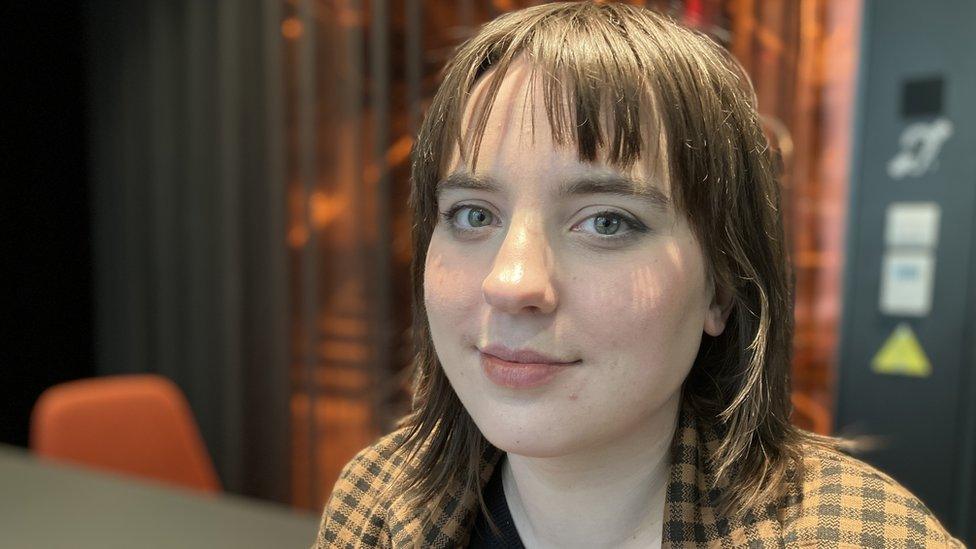
Megan Thomas of Disability Wales says the work capability assessment was "not fit for purpose"
Megan Thomas from Disability Wales said scrapping the WCA was a "positive step" but argued the changes should go further.
"One of the things we see is a lot of barriers not just to accessing work but higher paid work," she said.
"That barrier is there often because of a myriad of reasons, whether it's access to education or accessing the workplace itself."
Ben Francis from the Federation of Small Businesses (FSB) said he would like to see greater support for disabled people to become self-employed.
"We would have preferred to have seen the government and employers coming together to form some sort of 'kick-start' scheme which would ultimately encourage disabled people into the workplace and one of those strands would be advocating self-employment as a viable route," Mr Francis said.
"An FSB report has found 25% of small business owners either have a disability or some form of illness, therefore a lot can be learned from them about the benefits of self-employment."
- Published15 March 2023
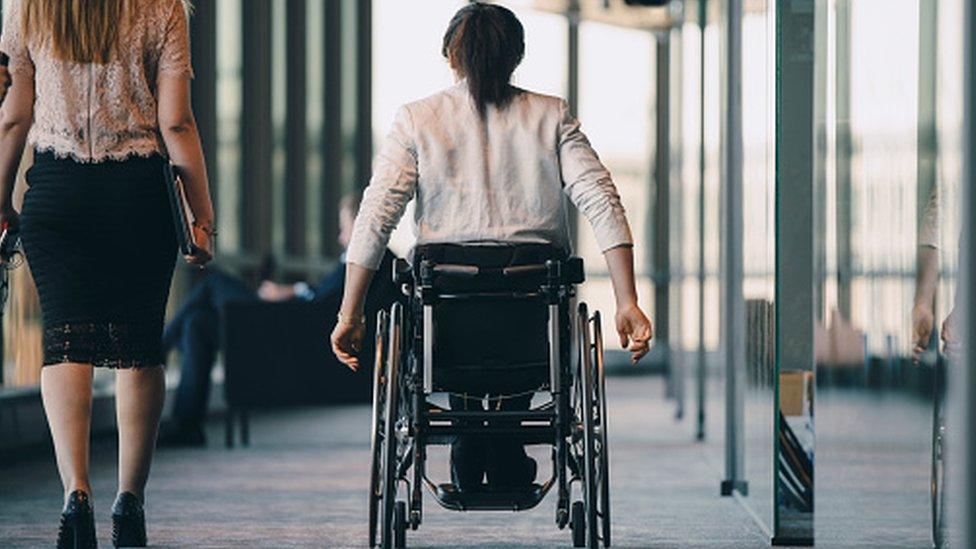
- Published12 April 2023
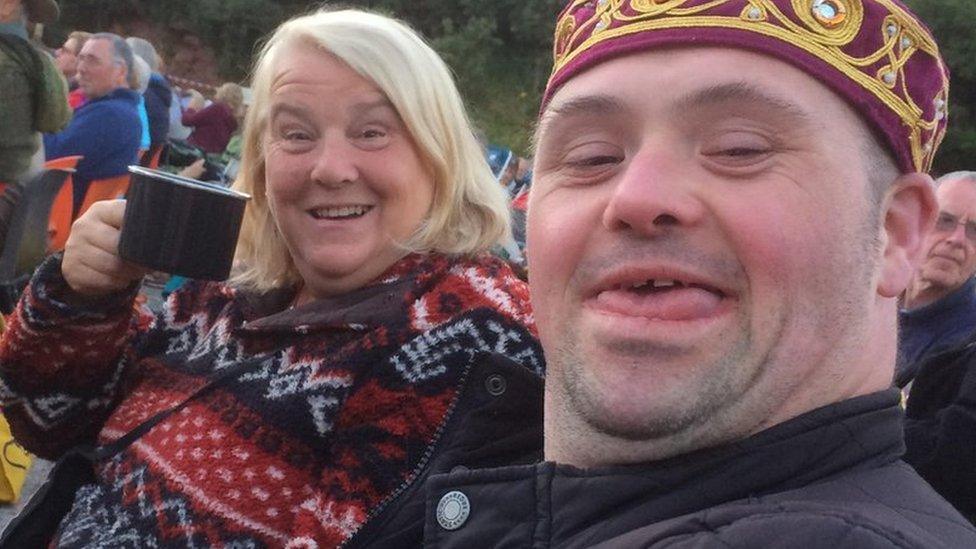
- Published9 December 2022
